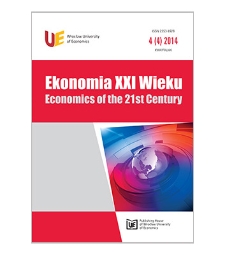Lower Silesian Digital Library contains 103 583 digital objects
Object
Title: The meaning of global rules of leading trade with particular focus on MFN for developing countries
Title in english:
Creator:
Description:
Ekonomia XXI Wieku = Economics of the 21st Century, 2014, Nr 4 (4), s. 9-27
Abstrakt:
Publisher:
Wydawnictwo Uniwersytetu Ekonomicznego we Wrocławiu
Place of publication:
Date:
Resource Type:
Resource Identifier:
Language:
Relation:
Ekonomia XXI Wieku = Economics of the 21st Century, 2014, Nr 4 (4)
Rights:
Wszystkie prawa zastrzeżone (Copyright)
Access Rights:
Dla wszystkich w zakresie dozwolonego użytku
Location:
Object collections:
- Lower Silesian Digital Library > Participants of the Consortium > 04. Wroclaw University of Economics > Periodicals published by the University Publishing House > Ekonomia XXI Wieku = Economics of the 21st Century
- Lower Silesian Digital Library > Resources > 2. Czasopisma > Czasopisma współczesne
Last modified:
Oct 16, 2019
In our library since:
Apr 21, 2015
Number of object content hits:
227
All available object's versions:
https://dbc.wroc.pl./publication/29862
Show description in RDF format:
Show description in OAI-PMH format:
| Edition name | Date |
|---|---|
| The meaning of global rules of leading trade with particular focus on MFN for developing countries | Oct 16, 2019 |
Objects Similar
Domiter, Małgorzata
Stawicka, Magdalena
Lorek, Agnieszka
Broszkiewicz, Magdalena
Żmuda, Maciej
























